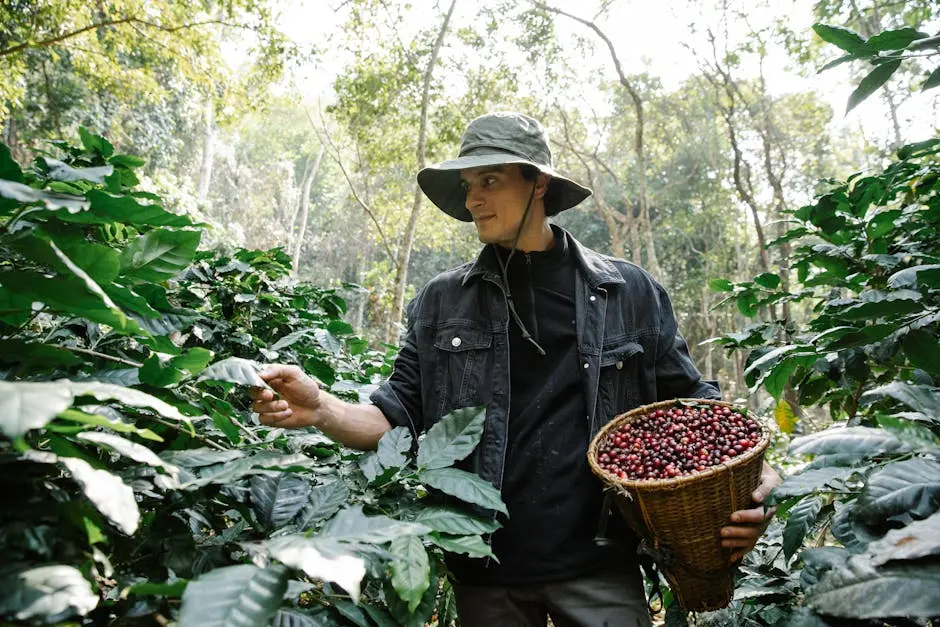
How Do I Ensure My Home Coffee Is Ethically Sourced?
With the rising awareness of ethical consumption, ensuring that your home coffee is ethically sourced is crucial. This guide will help you navigate the best practices and options available to make sure your morning brew aligns with your values.
Step 1: Understand Coffee Sourcing
Begin by learning about how coffee is sourced. Familiarize yourself with terms like fair trade, direct trade, and organic. These labels can help you identify coffees that support ethical practices.
Understanding the intricacies of coffee sourcing is essential. For example, fair trade ensures that farmers receive fair payment for their labor, enabling them to build sustainable livelihoods. It’s also beneficial to know about direct trade, which involves coffee roasters sourcing beans directly from farmers, often at a premium price. Such practices can lead to better quality beans and stronger relationships between producers and consumers.
Another integral component is sustainable farming. Look for coffees that emphasize environmental stewardship, which means they avoid harmful pesticides and support biodiversity. When you make informed choices, your morning coffee not only tastes better but also contributes positively to the planet.
Step 2: Research Coffee Brands
Look for brands that prioritize ethical sourcing. Many companies provide transparency about their supply chain, so check their websites for sourcing information and certifications.
In your quest to find the right brands, consider checking for certifications like Rainforest Alliance or USDA Organic. These certifications can guide you toward brands that truly commit to ethical practices. Reading reviews and customer testimonials can also be quite illuminating, revealing how the brand operates and treats its workers.
Engaging with social media platforms is another fantastic way to discover ethical coffee brands. Many companies share their sourcing stories and community engagements through Instagram or Facebook, allowing buyers to feel more connected to the brands they choose. Delving into these platforms can not only broaden your knowledge but also lend a face to your favorite coffees.
As you research, don’t shy away from reaching out directly to brands with questions about their sourcing practices. Genuine companies are usually more than happy to share their stories and details on how their coffee positively impacts farming communities.
Step 3: Support Local Roasters
Consider buying from local coffee roasters who focus on ethically sourced beans. Engaging with them can provide insights into where their coffee comes from and their sourcing practices.
Buying from local roasters not only supports your community but also fosters a connection between you and the coffee you drink. When you visit a roastery, you often have the opportunity to meet the roasters and learn firsthand about their sourcing methods. This direct interaction can provide you with a wealth of knowledge about different beans and their unique flavors.
Moreover, many local roasters curate their beans carefully, often selecting unique blends that highlight the quality and story behind each batch. By choosing to purchase from these artisans, you’re more than just a consumer; you’re part of a story that values sustainability and transparency.
Finally, local roasters frequently host tasting events where you can explore various types of ethically sourced coffees. These events not only educate you further but also strengthen the notion of community around coffee appreciation. So, why not make this experience a part of your coffee journey?
Step 4: Engage with Your Coffee Community
Join coffee enthusiast groups or forums to share information and experiences. Engaging with a community can enhance your knowledge of ethical coffee and suggest reliable brands.
Communities, whether online or offline, are excellent hubs for exchanging tips and ideas. Participating in discussions can lead you to lesser-known brands that adhere to ethical sourcing practices. Often, other coffee lovers are eager to share their discoveries, giving you a wealth of information to draw from.
In addition, attending coffee fairs or local meetups can provide invaluable face-to-face connections with other enthusiasts who share your passion for ethical coffee. Networking in these settings may lead to personal recommendations you might not find elsewhere, deepening your understanding and appreciation.
As a bonus, engaging with local baristas can further enhance your journey. They are often knowledgeable about their products and can point you to ethically sourced options that you may have otherwise missed. So don’t hesitate to ask questions—they love sharing their expertise!
Savor Your Ethical Coffee Choice
By taking the time to research and choose ethically sourced coffee, you contribute to fair trade practices and support sustainable farming. Enjoy your cup of coffee knowing you’re making a difference.

